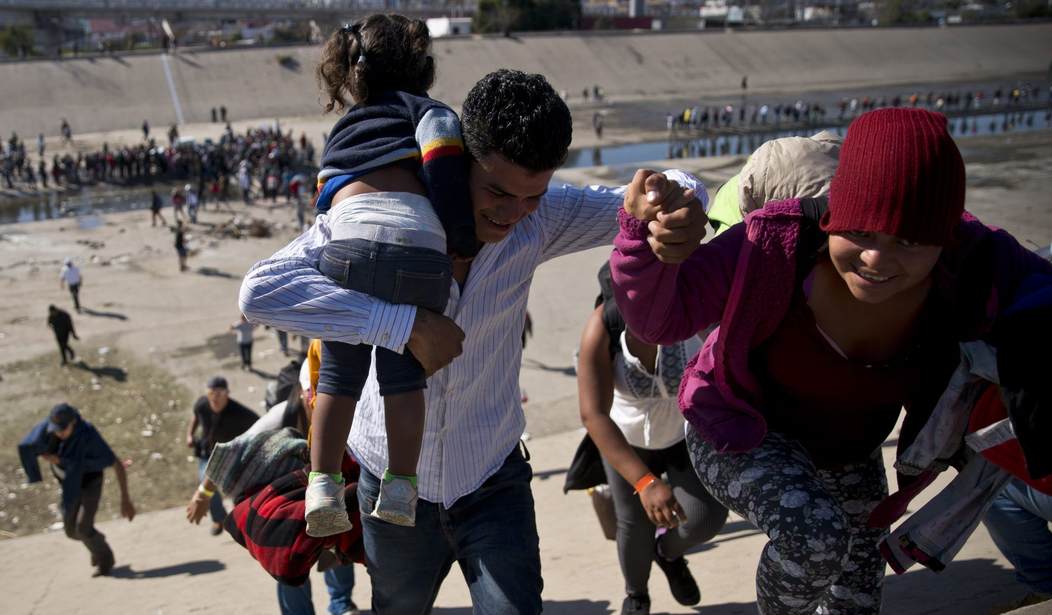A group of United Nations officials advised the United States that rhetoric surrounding the migrant caravan “has detrimental effects on the right to mental health not only of migrants” and also on “the general public.”
Letters were sent to the governments of the U.S., Guatemala, Honduras and Mexico, asking that migrants traveling from Central America to request asylum at the U.S. border have their human rights protected and have their humanitarian needs — food, water, healthcare, sanitation, etc. — fully addressed.
“Rather than fueling tensions with hate speech and threats, governments should work together to tackle inequality, poverty, social exclusion, violence, insecurity, environmental degradation and persecution as the main drivers of migration in Central America. Cooperation between these states is urgently required to develop more accessible, regular, safe and affordable migration channels,” said the UN experts.
Sending the letters were Seong-Phil Hong, chair-rapporteur of the Working Group on Arbitrary Detention; Obiora C. Okafor, independent expert on human rights and international solidarity; Dainius Puras, special rapporteur on the right of everyone to the enjoyment of the highest attainable standard of physical and mental health; Leilani Farha, special rapporteur on adequate housing as a component of the right to an adequate standard of living, and on the right to non-discrimination in this context; Michel Forst, special rapporteur on the situation of human rights defenders; Felipe González Morales, special rapporteur on the human rights of migrants; E. Tendayi Achiume, special rapporteur on contemporary forms of racism, racial discrimination, xenophobia and related intolerance; Nils Melzer, special rapporteur on torture and other cruel, inhuman or degrading treatment or punishment; Maria Grazia Giammarinaro, special rapporteur on trafficking in persons, especially women and children; and Ivana Radačić, chair of the working group on the issue of discrimination against women in law and in practice.
The UN estimates that between 12,000 and 14,000 migrants have crossed the Guatemala-Mexico border, headed north to the U.S., since mid-October, including about 100 LGBT persons desiring to claim asylum. A month ago, UNICEF estimated 2,800 children were among the 7,000-strong caravan that had been working its way up from Honduras.
Most of the migrants have been from Honduras, the UN says, but increasing numbers of migrants are joining from Guatemala, Nicaragua and El Salvador.
Mexico’s Ministry of Foreign Relations sent a letter to the U.S. Embassy this week asking for an “exhaustive investigation” into use of force by the Border Patrol, namely firing tear gas into Mexico.
President Trump said Tuesday that the current caravan contains “over 500 people that are serious criminals and gang members” and added that he’d “like to see Mexico take those people and move them back to Honduras, move them back to Guatemala, move them back to El Salvador where most of them come from.”
Pressed on whether those waiting at the border should be allowed to apply for asylum, Trump reiterated that “we don’t want the criminals and we don’t want people in that don’t come in legally.”
“So, we’re working very hard. People are not coming into our country,” he said. “They have not been able to breach. They’re not going to breach.”
The UN officials said that “it is of particular concern that such rhetoric is expressed by high-level authorities, leading to the escalation and normalization of hate speech, incitement to hatred and discrimination in the political and public sphere.”
They also warned that the deployment of the U.S. military to the border could lead to “serious violations of human rights” because “experience shows that when armed forces are used to perform tasks that they are not trained to do” violations can occur. Denying the opportunity to present asylum claims violates “international principle,” they noted.
“Threats to cut aid to the countries of origin of the migrants is counterproductive, as this may only worsen the living conditions from which these migrants were fleeing in the first place,” the officials warned.









Join the conversation as a VIP Member